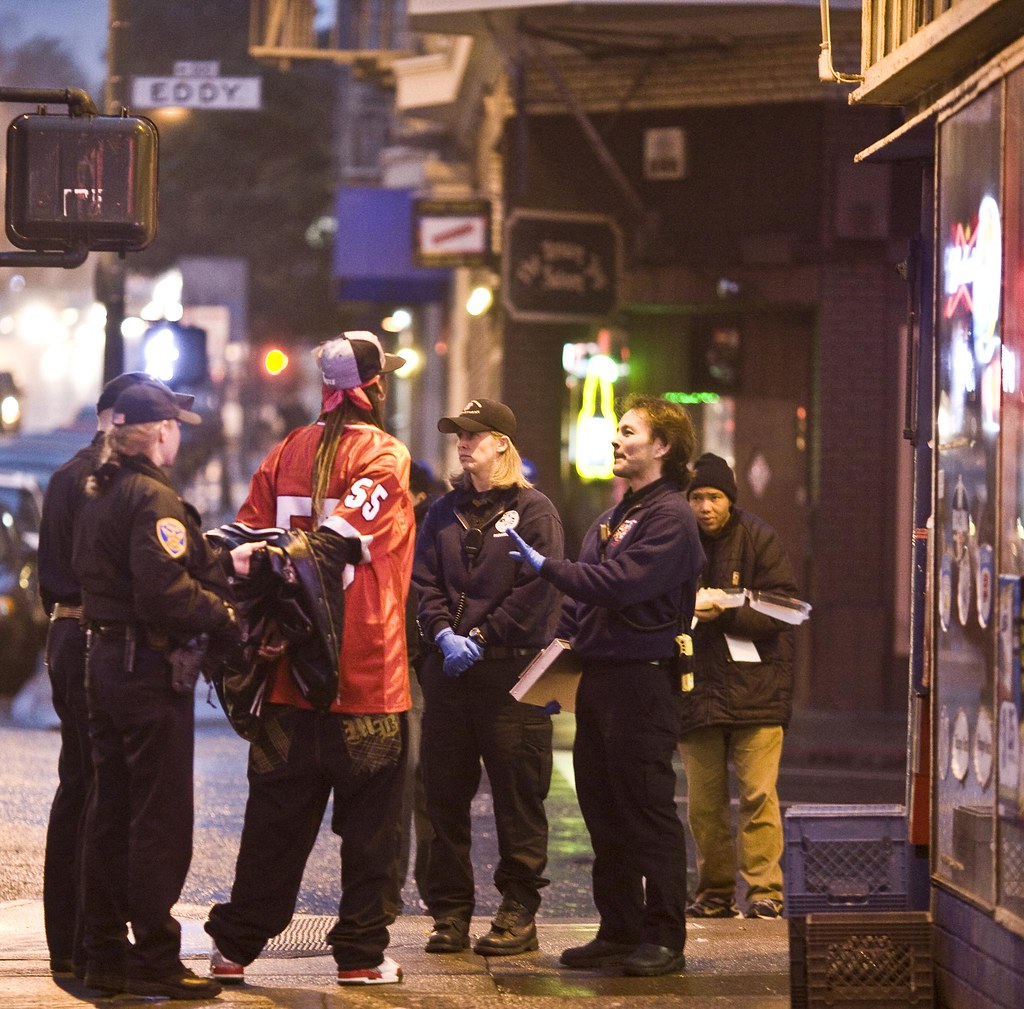Navigating Solicitation Charges & Strategies for Defense
Understanding solicitation charges and their potential consequences is crucial when facing legal proceedings. Solicitation refers to the act of requesting, encouraging, or enticing someone to commit a crime, particularly involving illegal activities such as prostitution or drug trafficking. In many jurisdictions, solicitation is considered a serious offense and can carry severe penalties.
The consequences of solicitation charges can vary depending on the specific laws of the jurisdiction and the nature of the solicited crime. In some cases, solicitation may be classified as a misdemeanor, resulting in fines, probation, or a brief period of incarceration. However, in more serious situations or for repeat offenders, solicitation charges can lead to significant prison sentences, hefty fines, and long-term consequences such as a tarnished reputation or difficulty finding employment.
In this post, we will explore the legal definition of solicitation, possible defenses, and how to prove entrapment in order to get your charges dismissed. With the right legal knowledge and a strong defense strategy, you can navigate solicitation charges and protect your rights.
Elements of a Solicitation Charge
To successfully defend against solicitation charges, it is important to grasp the key components that make up this offense. Solicitation involves the act of enticing, encouraging, or requesting another person to engage in illegal activities. The specific illegal activity can vary, such as soliciting prostitution, drug trafficking, or even soliciting a crime of violence.

Solicitation charges can be applied to both individuals who actively seek out another person to commit the crime and those who passively encourage or facilitate the commission of the offense.
Intent
An essential element of a solicitation charge is the intent to commit the underlying crime. In other words, the prosecution must prove that the accused had a genuine intention and purpose to engage in the illegal activity. This intent can be established through various means, including recorded conversations, text messages, or witness testimonies.
Attempt
Solicitation charges can be based on attempts, even if the actual crime was not completed. This means that if there is evidence to suggest that the accused took substantial steps towards the commission of the crime, such as making arrangements, offering payment, or providing necessary tools, it can still lead to a solicitation charge.
Entrapment
Entrapment can be a viable defense strategy in solicitation cases. Entrapment occurs when law enforcement officers induce or coerce an individual into committing a crime that they would not have otherwise committed. To successfully prove entrapment, the accused must demonstrate that they were not predisposed to commit the offense and that the idea and opportunity to engage in the illegal activity were introduced by law enforcement.
Solicitation Offenses
Solicitation refers to the act of requesting, encouraging, or enticing someone to commit a crime, particularly involving illegal activities such as prostitution or drug trafficking. In most jurisdictions, solicitation is considered a serious offense and can carry severe penalties.
Prostitution
Prostitution is the offering or agreement to receive a fee in exchange for sexual conduct. This is addressed by Texas Penal Codes regarding solicitation, promotion, and online promotion of prostitution, as well as aggravated promotion and online promotion of prostitution, and compelling prostitution.
Solicitation of Prostitution
Under Texas law, it is illegal to offer or agree to pay a fee in exchange for engaging in sexual conduct. This can include offering to buy sexual services or offering to pay someone for sex. Solicitation typically involves direct communication between two parties.
Promotion of Prostitution
Also known as “pimping” or “pandering”, this offense is committed when an individual who is not a prostitute receives money or property due to an agreement to participate in the proceeds of prostitution. It may also involve soliciting another person to engage in sexual conduct with another person for compensation.
Online Promotion of Prostitution
When owning, managing, or operating an interactive computer service or information content provider with the intent to promote the prostitution of another person or facilitate another person to engage in prostitution or solicitation of prostitution online, an individual is committing an offense.
Aggravated Promotion of Prostitution
An individual commits an offense if he knowingly owns, finances, controls, supervises, or manages a prostitution enterprise that uses two or more prostitutes.
Aggravated Online Promotion of Prostitution
A person is committing an offense if they own, manage, or operate an interactive computer service or information content provider with the intent to promote the prostitution of five or more persons or facilitate five or more persons to engage in prostitution or solicitation of prostitution.
Compelling Prostitution
This offense occurs when an individual forces, threatens, coerces, or frauds another into committing prostitution, or causes a child younger than 18 years to commit prostitution, regardless of the actor’s knowledge of the age of the child at the time of the offense.
Defense Strategies for Solicitation Charges
When a person is arrested for prostitution, it’s because the arresting officer believes they were loitering with the purpose of soliciting sex. Many prostitutes are caught in sting operations where officers work undercover posing as Johns. Sometimes the ethical nature of these operations is challenged in court.
Nonetheless, there are a number of factors that go into filing a prostitution charge and they are:
- Possession of condoms
- Possession of large amounts of money
- Possession of sex toys and devices
- Possession of burner cell phones
- Possession of a client list or “little black book”
- Loitering in an area that is known for prostitution
It is important to note that not all of these acts indicate that prostitution has occurred. This is why there are times when false accusations happen. False accusations can occur due to being in the wrong place at the wrong time or possessing a combination of items that can be indicative of prostitution.
If you have been charged with solicitation, there are several legal defenses available to you. The most common is entrapment – proving that the police used coercion or deception to get you to commit a crime.
- If it can be shown that you were coerced into the conduct against your will, or that you didn’t know the other person was a prostitute, the charges may be dropped.
- If the evidence against you is deemed insufficient or untrustworthy, or if it can be established that no exchange of money for a sex act occurred, the prosecution may be unable to prove their case.
- If it is impossible for you to have engaged in the act of solicitation due to a technicality such as age or residence, your chances of avoiding conviction increase significantly.
While each case is unique, there are several common defense strategies that can be employed to challenge the charges and prove your innocence or mitigate the consequences.
- Lack of intent: One of the primary defenses is to argue that there was no intent to engage in the alleged solicitation. This can be supported by presenting evidence that the communication or interaction was misinterpreted or taken out of context. It is important to demonstrate that there was no actual intention to commit the solicited act.
- Lack of evidence: Another defense strategy is to challenge the evidence presented by the prosecution. This can involve scrutinizing the methods used by law enforcement during sting operations or undercover investigations. The defense may argue that the evidence is insufficient, or unreliable, or that proper procedures were not followed, leading to a potential dismissal or reduction of charges.
- Entrapment: Entrapment is a defense strategy that asserts that law enforcement induced or coerced an individual into committing a crime they would not have otherwise committed. To prove entrapment, it must be shown that the government agents or informants played an active role in persuading or pressuring the accused person to engage in the solicitation. This defense can be challenging to establish, as it requires substantial evidence and a thorough examination of the circumstances surrounding the case.
- Constitutional violations: It is essential to examine whether any constitutional rights were violated during the arrest or investigation. This could include violations of the Fourth Amendment (unlawful search and seizure), Fifth Amendment (right against self-incrimination), or Sixth Amendment (right to legal counsel). If any violations occurred, the defense can argue for the suppression of evidence or dismissal of charges.
- Mistaken identity or false accusation: In some cases, individuals may be falsely accused or mistaken for someone else. The defense can present evidence, such as alibis, witness testimonies, or surveillance footage, to establish that the accused was not involved in the alleged solicitation.
Proving Entrapment
Entrapment occurs when law enforcement officers induce or persuade someone to commit a crime that they would not have otherwise committed. It is essential to understand the key elements and requirements needed to establish entrapment in order to build a strong defense.

The burden of proof for entrapment lies with the defendant. This means that you, as the accused, have the responsibility to demonstrate that you were indeed entrapped. To prove entrapment, you must establish two essential elements:
Government Inducement
You need to demonstrate that law enforcement officers, through their actions or behavior, created a situation that would lead a reasonable person to commit the crime. This can include coercion, persistent persuasion, or other tactics that push you towards engaging in illegal activity.
Lack of Predisposition
You must show that you did not have a pre-existing inclination or predisposition to commit the crime. This means proving that you were not already involved in similar activities, had no prior intent or plan to commit the offense, and were not predisposed to engage in illegal behavior.
FAQs about Solicitation Charges
How not to get busted for solicitation?
The best way to avoid getting arrested for solicitation is to never engage in the activity. Offering or agreeing to pay someone for a sexual act is illegal, and penalties for such an offense can be severe. Additionally, law enforcement agents may use undercover tactics to catch individuals engaging in solicitation activities. To reduce the chances of being arrested for solicitation, it’s important to remain aware of your surroundings and resist any temptation to break the law.
What is charged with solicitation?
Solicitation is a crime typically involving one person attempting to transfer money or merchandise to another person with the intention of engaging in a specified illegal activity, typically sex acts. Depending on state laws, different types of solicitation-related offenses can exist, such as attempted solicitation or soliciting a minor. Additionally, some states may consider advertising for prohibited services to be considered solicitation.
What is the punishment for soliciting in Florida?
In Florida, the punishment for soliciting prostitution depends on the severity of the offense. A person found guilty of misdemeanor solicitation faces up to one year in jail and/or a fine of up to $1,000. Felony prostitution charges carry a maximum prison sentence of up to five years and/or fines of up to $5,000.
What is the law on soliciting in Texas?
Texas state law considers both offering and accepting money or items of value in exchange or as part of an agreement to provide sexual services or any other illegal act a felony offense known as “Solicitation of Prostitution”. Penalties for this crime include up to two years in jail and/or a fine of up to $10,000.
Can you be guilty of solicitation and attempt?
Yes, depending on the circumstances and the applicable laws in your state, you may face charges of both solicitation and attempt. Under certain statutes, such as in Texas, attempting to commit a crime but failing to complete it due to outside factors is also considered criminal behavior and can lead to criminal penalties.
What are the consequences of solicitation?
Consequences for involvement in solicitation vary by jurisdiction but generally include legal penalties such as imprisonment and fines. Other potential consequences could include damage to one’s reputation, loss of employment opportunities, loss of professional licensure, and even registration as a sex offender in some cases.
What is the common law defense to solicitation?
One potential defense strategy that may be used in cases involving solicitation involves pleading not guilty based on lack of intent. This defense typically rests on proving that no agreement was reached with the alleged prostitute and no payment was offered prior to any contact with law enforcement officials.
Do cops use Snapchat for stings?
While law enforcement agencies have historically used traditional online platforms like Craigslist and Backpage for sting operations, they may now also target social media sites like Snapchat in an effort to catch individuals engaged in unlawful activities such as prostitution or drug dealing.
Can police see everything on Snapchat?
Due to their privacy features, there are limits on what police can view when it comes to Snapchat messages and stories. However, if police obtain access to one’s device through a court order or search warrant, they may be able to view all messages sent or received via Snapchat, including images and videos.
How do you tell if you’re talking to an undercover cop?
Although it is difficult to know with certainty whether or not you are speaking with an undercover officer on social media, there are signs that can make it more likely that it’s a police officer posing as a member of the public. These include if they ask very specific questions about illegal activities or insist on meeting in person despite having a digital conversation.
What is the most common example of solicitation?
The most common example of solicitation is offering money or items of value in exchange for sexual services or other forms of illicit activity. This type of behavior is illegal almost everywhere, often resulting in harsh legal penalties upon conviction.
Why is solicitation illegal?
Solicitation is illegal because it involves encouraging another person to engage in criminal behavior. It is considered an accessory crime since those who solicit crimes are seen as aiding or abetting the commission of a crime without necessarily engaging directly in it themselves.
Is solicitation a federal crime?
In some cases, yes. If interstate commerce is involved (such as paying someone to cross state lines to engage in prostitution), then the offense could be classified as a federal crime subject to federal prosecution and punishments.
Working with an Experienced Defense Attorney
An experienced defense attorney will thoroughly review the details of your case, including the evidence against you, witness statements, and any potential legal loopholes that can be exploited in your defense. They will understand the intricacies of solicitation laws in your jurisdiction and how they apply to your specific situation.
A skilled defense attorney will have a deep understanding of the tactics used by law enforcement during sting operations or undercover operations. They can evaluate whether any entrapment occurred, which is a common defense strategy in solicitation cases.
Entrapment occurs when law enforcement officers induce or persuade individuals to commit a crime they were not predisposed to commit. If this defense is applicable to your case, your attorney will gather evidence to prove entrapment, such as recorded conversations, witness testimonies, or inconsistencies in police conduct.
Alternative resolutions may include diversion programs or treatment options, especially if the underlying issue is related to addiction or mental health struggles. These programs aim to address the root causes of the behavior and provide individuals with the necessary support and resources to overcome their challenges.
Plea negotiations, on the other hand, involve discussions between your defense attorney and the prosecution to reach a mutually agreeable resolution. This could involve pleading guilty to a lesser offense or negotiating for a reduced sentence. The goal is to find a resolution that balances the interests of both parties while minimizing the potential consequences for you.
Working with an experienced defense attorney can help protect your rights throughout the legal process. They will ensure that proper procedures were followed during your arrest and that your constitutional rights were not violated. They will also provide guidance and support during questioning or negotiations with the prosecution.
Conclusion
We hope you found our post on navigating solicitation charges helpful and informative. Dealing with solicitation charges can be a daunting and complex process, but with the right strategies for defense and proving entrapment, you can protect your rights and build a strong case.
Remember to consult with a skilled attorney who specializes in criminal defense to guide you through this challenging legal journey. By understanding the nuances of the law and utilizing proven defense strategies, you can increase your chances of a favorable outcome. Stay informed, stay empowered, and stay strong.




